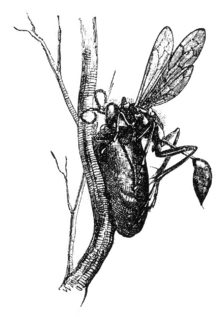On Aggression
 Cover of the first edition | |
| Author | Konrad Lorenz |
|---|---|
| Original title | Das sogenannte Böse |
| Translator | Marjorie Latzke |
| Country | Austria |
| Language | German |
| Subject | Behavioural science |
| Publisher | Methuen Publishing |
Publication date | 1963 |
Published in English | 1966 |
| Media type | Print (Hardcover and Paperback) |
| Pages | 273 |
| ISBN | 978-0-415-28320-5 |
| OCLC | 72226348 |
On Aggression (German: Das sogenannte Böse zur Naturgeschichte der Aggression) is a 1963 book by the ethologist Konrad Lorenz; it was translated into English in 1966.[1] As he writes in the prologue, "the subject of this book is aggression, that is to say the fighting instinct in beast and man which is directed against members of the same species." (Page 3)
According to Lorenz, animals, particularly males, are biologically programmed to fight over resources. This behavior must be considered part of natural selection, as aggression leading to death or serious injury may eventually lead to extinction unless it has such a role.
However, Lorenz does not state that aggressive behaviors are in any way more powerful, prevalent, or intense than more peaceful behaviors such as mating rituals. Rather, he negates the categorization of aggression as "contrary" to "positive" instincts like love, depicting it as a founding basis of other instincts and its role in animal communication.
Additionally, Lorenz addresses behavior in humans, including discussion of a "hydraulic" model of emotional or instinctive pressures and their release, shared by Freud, and the abnormality of intraspecies violence and killing. His 'hydraulic' model, of aggression as a force that builds relentlessly without cause unless released, remains less popular than a model in which aggression is a response to frustrated desires and aims.
Ritualization
In the book, Lorenz describes the development of rituals among aggressive behaviors as beginning with a totally utilitarian action, but then evolving to more and more stylized actions, until finally, the action performed may be entirely symbolic and non-utilitarian, now fulfilling a function of communication. In Lorenz's words,
"Thus while the message of inciting [a particular aggressive behavior performed by the female of cooperating mated pairs] in ruddy shelduck and Egyptian geese could be expressed in the words 'Drive him off, thrash him!', in diving ducks [a related species in which this trait has been further ritualized] it simply means, 'I love you.' In several groups, midway between these two extremes, as for example in the gadwall and widgeon, an intermediate meaning may be found, 'You are my hero. I rely on you.'"[2]
Criticism
Despite its influence on popular thought, there has been significant criticism of Lorenz's ideas in On Aggression, notably by psychoanalyst Erich Fromm in his book The Anatomy of Human Destructiveness.[3]
Biologist E. O. Wilson argues in his book On Human Nature (1978) that both Lorenz and Fromm are essentially wrong. He lists a variety of aggression categories, each separately subject to natural selection, and states that aggressive behavior is, genetically, one of the most labile of all traits. He maintains that aggression is a technique used to gain control over necessary resources, and serves as a "density-dependent factor" in population control. He argues against the "drive-discharge" model created by Freud and Lorenz, where substitute aggressive activities (such as combative sports) should reduce the potential for war, and in support of Richard G. Sipes's "culture-pattern" model, where war and substitute activities will vary directly. Wilson compares aggression to "a preexisting mix of chemicals ready to be transformed by specific catalysts that are added," rather than "a fluid that continuously builds pressure against the walls of its containers."[4]
Anthropologist Donald Symons, writing in The Evolution of Human Sexuality (1979), accused Lorenz of inadequately documenting his major thesis.[5]
See also
- Robert Ardrey, author of African Genesis, The Territorial Imperative, The Social Contract, and The Hunting Hypothesis
- Richard Dawkins, author of The Selfish Gene
- Group selection
- Hunting hypothesis
- Killer ape theory
- Social defeat
- Psychoanalytic theory
References
- ↑ Das sogenannte Böse zur Naturgeschichte der Aggression, Original edition : Verlag Dr. G Borotha-Schoeler, 1963 ("So-called evil, Toward a Natural History of Aggression").
- ↑ Konrad Lorenz (2002). On Aggression. Psychology Press. pp. 61–. ISBN 978-0-415-28320-5.
- ↑ Fromm, Erich (1973) The Anatomy of Human Destructiveness
- ↑ E.O. Wilson, On Human Nature Harvard (1978) pp.101-107
- ↑ Symons, Donald. The Evolution of Human Sexuality. Oxford University Press, 1979, p. 278.
